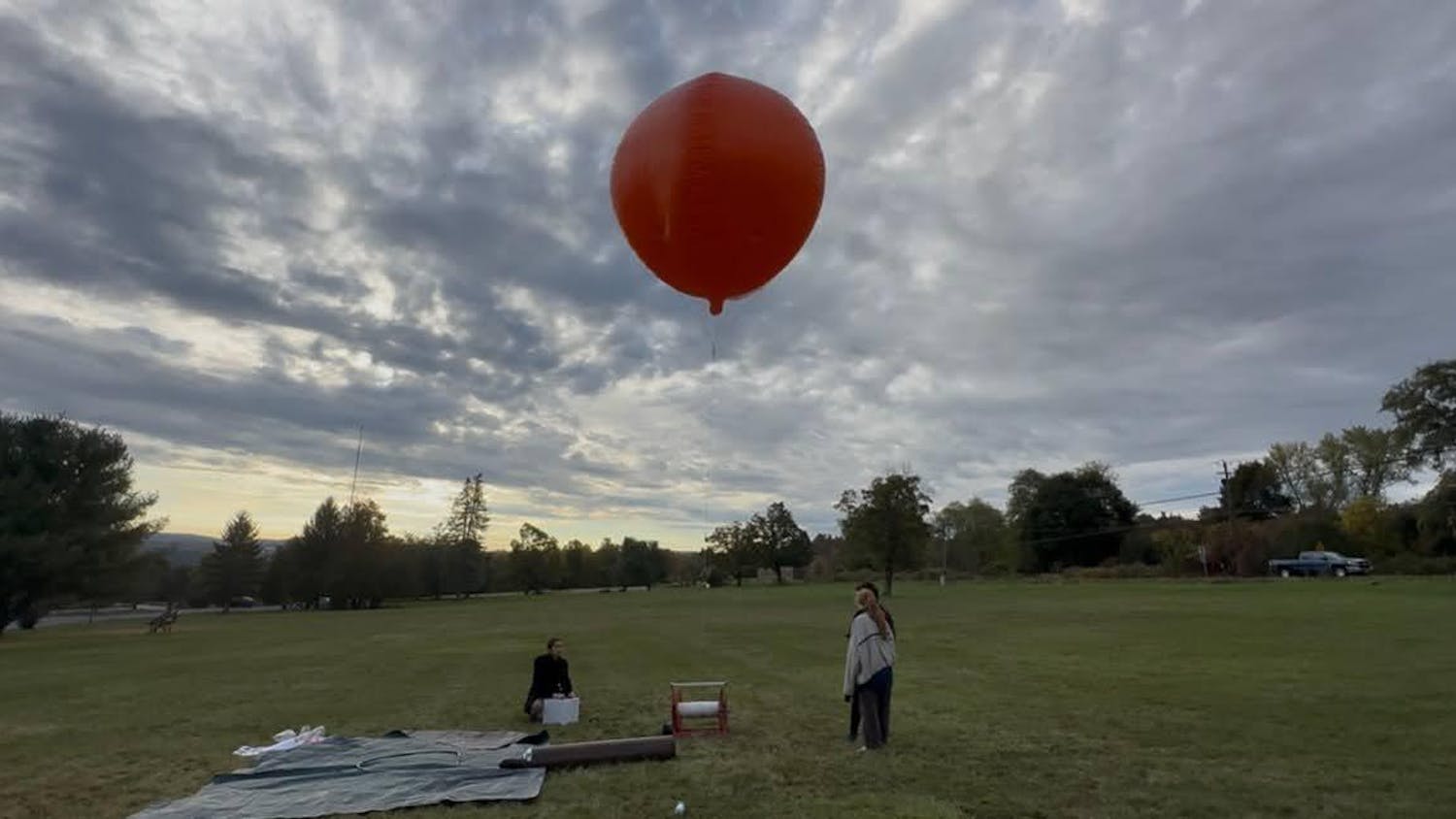3:10 to Yuma from director James Mangold is a thrilling, character-driven piece that ranks as one of the best films of the year. Its taut screenplay by Michael Brandt and Derek Haas creates an action-packed film with characters who are both human and immediately accessible. This, coupled with top-notch performances from the cast, marks Yuma as a definite must-see.
The film’s premise is simple but effective: after notorious gunslinger Ben Wade (Russell Crowe) is captured, a group of men is charged with transporting him to the town of Contention, where he will be put on the 3:10 train to a prison in Yuma. The group of locals includes a down-on-his luck rancher, Dan Evans (Christian Bale) and an old bounty-hunter Byron McElroy (Peter Fonda). This trip isn’t without its dangers, as the locals are threatened by their prisoner himself as well as his henchmen, who are determined to get their leader back.
These henchmen are led by the loyal, and borderline psychotic, Charlie Prince (Ben Foster). He relentlessly pursues the posse and is willing to kill anything or anyone that stands between him and the liberation of his boss. By the end, Dan Evans is the only man willing to see the job through and make sure that Ben Wade gets on the Yuma train.
A wounded Civil War veteran and unlucky rancher, Evans finds himself at the mercy of thugs hired by the local railroad interests trying to force him off his land. His teenage son Will (Logan Lerman) looks at him with little respect while his wife Alice (Gretchen Mol) does not look at him at all. Somehow, meeting Ben Wade is the best thing that has happened to Dan: getting him on the Yuma train offers a chance at redemption and an opportunity to win back the respect of his family. In his portrayal of Evans, Christian Bale sustains an intimate connection with the audience every moment that he stays on screen, once again proving that he can act in anything. If a movie called for him to play a pair of shorts, I have no idea in hell how he would do it, but I believe that he could. The audience would look at him in that movie and think that he was actually a pair of shorts.
Russell Crowe’s take on Ben Wade deserves special mention as well. Though Wade is a criminal in every sense of the word, Crowe manages to retain his humanity by methodically peeling away the nuances of his character, revealing a man that has a keen eye in observing people and finding their strengths and faults. Wade develops a sincere respect for Evans as he gradually comes to understand the motivations behind his stubbornness. The closer Dan Evans gets to bringing Ben Wade to justice the better they understand one another and begin to find a common ground and mutual respect in their unique circumstances.
James Mangold’s talent as a director, coupled with a fine script, usually provides great work, and with Yuma he doesn’t disappoint. He crafts a film that sustains a rapport with the audience for the entirety of the film. Mangold’s lengthy and varied resume (which include Walk the Line, Identity and Girl, Interrupted among others) suggests that the he is able to adjust his direction to the content and feel of the script, an important skill.
The score, by Marco Beltrami, is an awesome take on the traditional music for Westerns. While not as iconic as the Ennio Morricone score for The Good, Bad, and the Ugly, it becomes an important component in establishing an emotional connection between the audience and the film, especially in the final act.
3:10 to Yuma is a film that must not be missed. I overhead one viewer in the theater after the conclusion of the film remarking, “The movie was so good, I was glued to my seat!” The funny thing was that, judging by the tone of his voice, he really meant it.
3:10, Right On Time
Reading time: about 4 minutes
Read More










